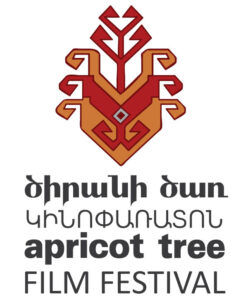Robert J. Flaherty

 Robert Joseph Flaherty (1884-1951) was an American filmmaker, who is considered the father of both the documentary and the ethnographic film. He was one of the first to combine documentary subjects with a fiction-film-like narrative and poetic treatment. Flaherty was one of seven children born to prospector Robert Henry Flaherty (an Irish Protestant) and Susan Klockner (a German Catholic). Due to exposure from his father’s work as an iron ore explorer, he developed a natural curiosity for people of other cultures. A self-proclaimed explorer, Flaherty was inducted into the Royal Geographic Society of England for his (re)discovery of the main island of the Belcher group in Hudson Bay in 1914. Flaherty was an acclaimed still photographer in Toronto. His portraits of American Indians and wildlife during his travels are what led to the creation of his critically acclaimed Nanook of the North. It was his enthusiasm and interest in these people that sparked his need to create a new genre of film. He directed and produced the first commercially successful feature-length documentary film, Nanook of the North (1922). The film made his reputation and nothing in his later life fully equaled its success, although he continued the development of this new genre of narrative documentary with Moana (1926), set in the South Seas, and Man of Aran (1934), filmed in Ireland’s Aran Islands.
Robert Joseph Flaherty (1884-1951) was an American filmmaker, who is considered the father of both the documentary and the ethnographic film. He was one of the first to combine documentary subjects with a fiction-film-like narrative and poetic treatment. Flaherty was one of seven children born to prospector Robert Henry Flaherty (an Irish Protestant) and Susan Klockner (a German Catholic). Due to exposure from his father’s work as an iron ore explorer, he developed a natural curiosity for people of other cultures. A self-proclaimed explorer, Flaherty was inducted into the Royal Geographic Society of England for his (re)discovery of the main island of the Belcher group in Hudson Bay in 1914. Flaherty was an acclaimed still photographer in Toronto. His portraits of American Indians and wildlife during his travels are what led to the creation of his critically acclaimed Nanook of the North. It was his enthusiasm and interest in these people that sparked his need to create a new genre of film. He directed and produced the first commercially successful feature-length documentary film, Nanook of the North (1922). The film made his reputation and nothing in his later life fully equaled its success, although he continued the development of this new genre of narrative documentary with Moana (1926), set in the South Seas, and Man of Aran (1934), filmed in Ireland’s Aran Islands.

